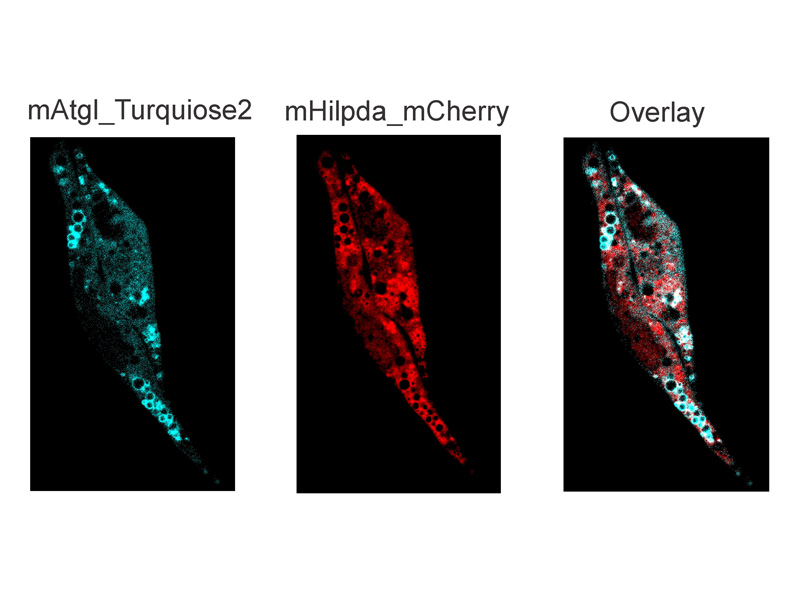Ein noch kaum erforschtes Protein verschafft bei Krebserkrankungen Tumoren einen Vorteil. Grazer BiowissenschafterInnen haben nun nachgewiesen, wie dieses wirkt, und die Funktion im Journal of Lipid Research veröffentlicht.
Fett wird in unserem Körper kurz- oder langfristig in Form von Triglyceriden im Gewebe gespeichert. Bei erhöhtem Energiebedarf oder Nahrungsentzug werden diese Depots aufgelöst und Fettsäuren in den Blutkreislauf freigesetzt. Dazu wird das Enzym ATGL benötigt, das die Fette in ihre Bestandteile spaltet. Die Fettsäuren dienen dann anderen Zellen als Nahrung oder werden als Signalstoffe verwendet.
ForscherInnen vom Institut für Molekulare Biowissenschaften der Uni Graz haben in Zusammenarbeit mit KollegInnen aus den Niederlanden das bis vor kurzem noch unbekannte Protein HILPDA charakterisiert, das ATGL – und damit den Fettabbau – hemmt. „In unserer Forschungsarbeit konnten wir eine direkte Wechselwirkung von ATGL und HILPDA nachweisen“, erklärt die Grazer Wissenschafterin Assoz. Prof. Dr. Monika Oberer. HILPDA wird im menschlichen Körper allerdings nur dann hergestellt, wenn das Gewebe nicht ausreichend mit Sauerstoff versorgt wird – wie das häufig bei Krebserkrankungen der Fall ist. Durch die Hemmung des fettspaltenden Enzyms programmieren die Krebszellen ihren Stoffwechsel um, und der Tumor kann trotz Sauerstoffmangel weiterwachsen. Die WissenschafterInnen stellten zudem fest, dass das Protein ausschließlich ATGL und keine anderen lipid-abbauenden Enzyme blockiert. „Dieser Puzzlestein im molekularen Verständnis von Krebs wird hoffentlich langfristig neue Wege für die Therapie erschließen“, so die Strukturbiologin. Auch könnten durch die Erkenntnis eventuelle Hürden in der Tumorbehandlung frühzeitig erkannt werden.
Thursday, 08 March 2018
